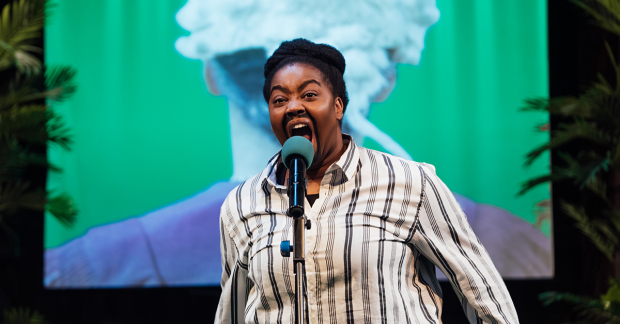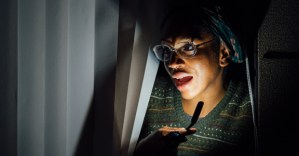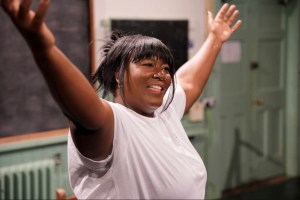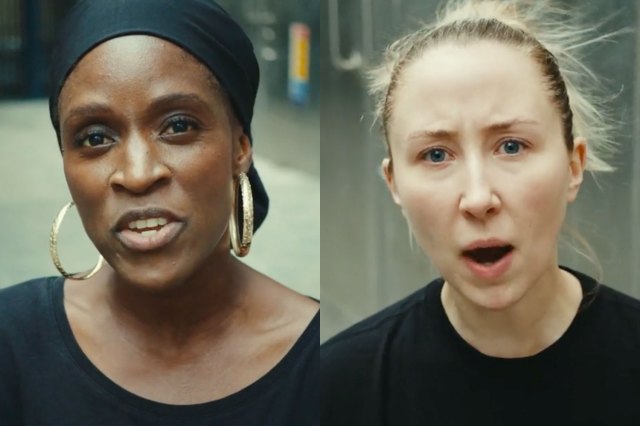Review: The Ridiculous Darkness (Gate Theatre)
Anthony Simpson-Pike adapts Wolfram Lotz’s play for the Gate

© Helen Murray
The Gate's 2018-19 season has, time and again, asked who has the right to decide which story is being told. In A Small Place, Jamaica Kincaid rails against those transforming her island home's history into a money-spinning tourism opportunity. In Dear Elizabeth, with a different cast at every performance, artistic director Ellen McDougall made the letters of Elizabeth Bishop and Robert Lowell a universal story for all.
Anthony Simpson-Pike's staging of Wolfram Lotz's The Ridiculous Darkness explores what happens when one narrative is told at the expense of others. A loosely reimagined and wickedly witty take on Heart of Darkness and Apocalypse Now, the piece opens on Somali pirate Ultimo (Rochelle Rose), trying to explain to a German district court why he had to turn to a life of piracy with his friend Tofdau (one many many roles played by Shannon Hayes) when there were no more fish left in the sea.
All of a sudden, wham, two German soldiers (Travis Alabanza and Seraphina Beh) burst in – "Flight of the Valkyries" blares out over the speakers, the pair rip light fixtures off the walls, hijack microphones and knock down mic stands. Ultimo is forced at gunpoint into a sound booth to sit in silence. Now, Alabanza tells us, we're sailing along the Hindu Kush, meeting a panoply of surreal (and western) characters, in search of Lieutenant Colonel Deutinger, an officer who went rogue and murdered his compatriots. Ultimo's story is ignored.
Lotz's piece was originally designed as a radio play but reimagined at the Gate it is full of tricks and twists – be it Josh Pharo's flashy lighting and projection or Max Pappenheim's foley artistry, created by Rose in the sound booth.
Simpson-Pike's production also goes one step further than Lotz's original text. With help from dramaturg Nina Segal, it is injected with knowing asides. It's made very clear to the audience that Lotz, a white man, writes exclusively male voices into his text – so much so that by the end of the play the non-white, non-male cast are taking jabs at their scripts.
It's a brilliant, at times elusive production about the marginalisation of voices and of skin colours in colonial stories that makes a mockery of jocular, weapon-clenching masculinity, especially in Rosie Elnile's garishly stylised set, full of clashing greens and purples. It's also satirically whimsical and wry – when the two Germans finally encounter Deutinger, he gives a protracted monologue about a time he dreamed about being up his own arse.
It all seems so, well, ridiculous, in retrospect. An absurd and absorbing show clocking in at 100 minutes straight through, you'd be sorely pressed to find anything more riveting or stupendous. Bravo to the Gate for closing off its latest season in style.

























